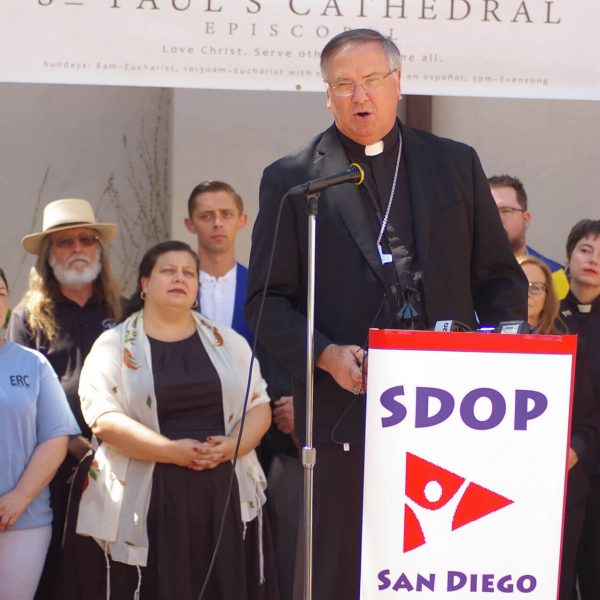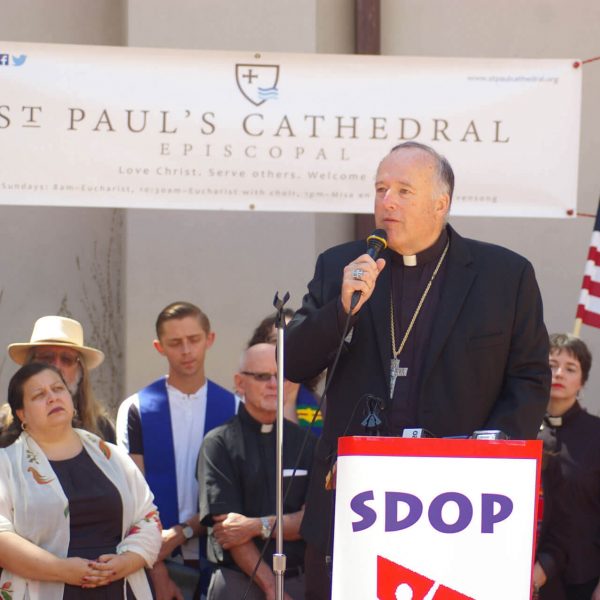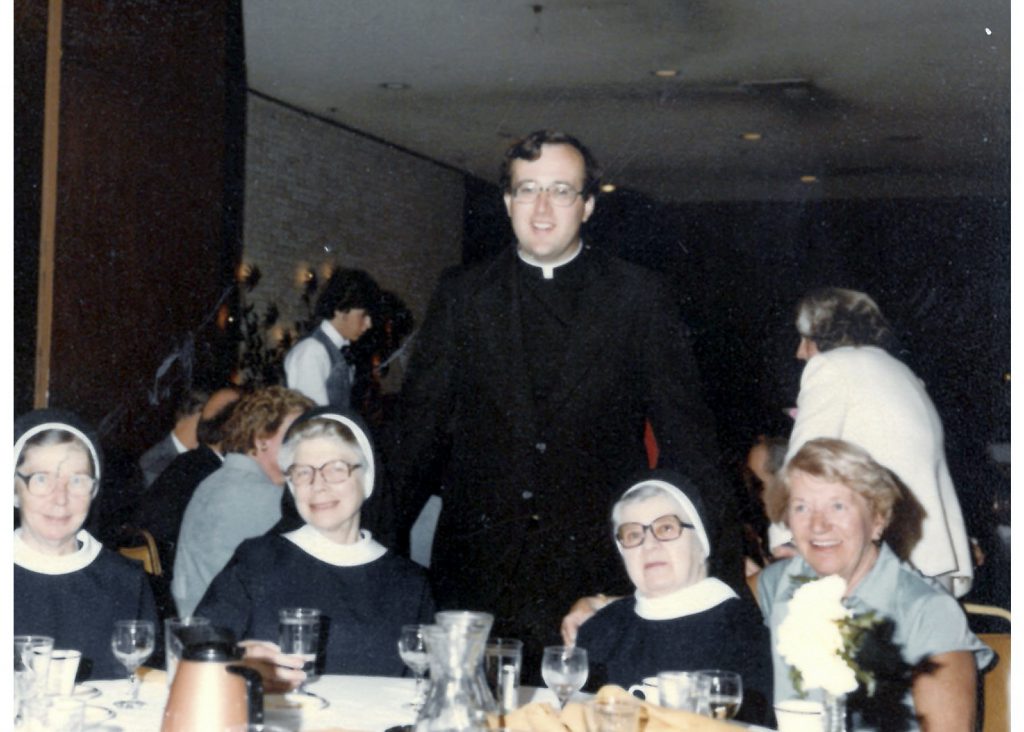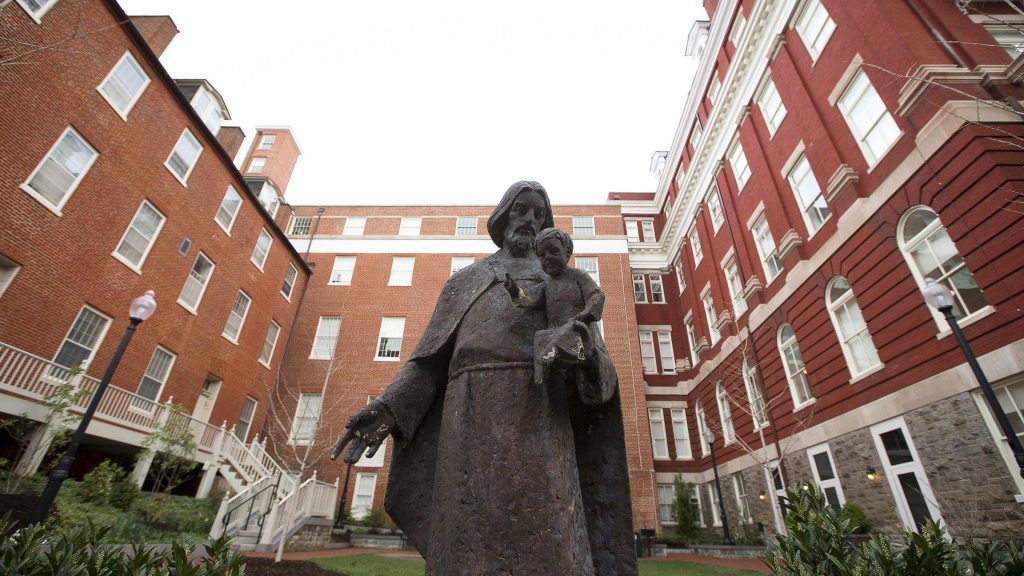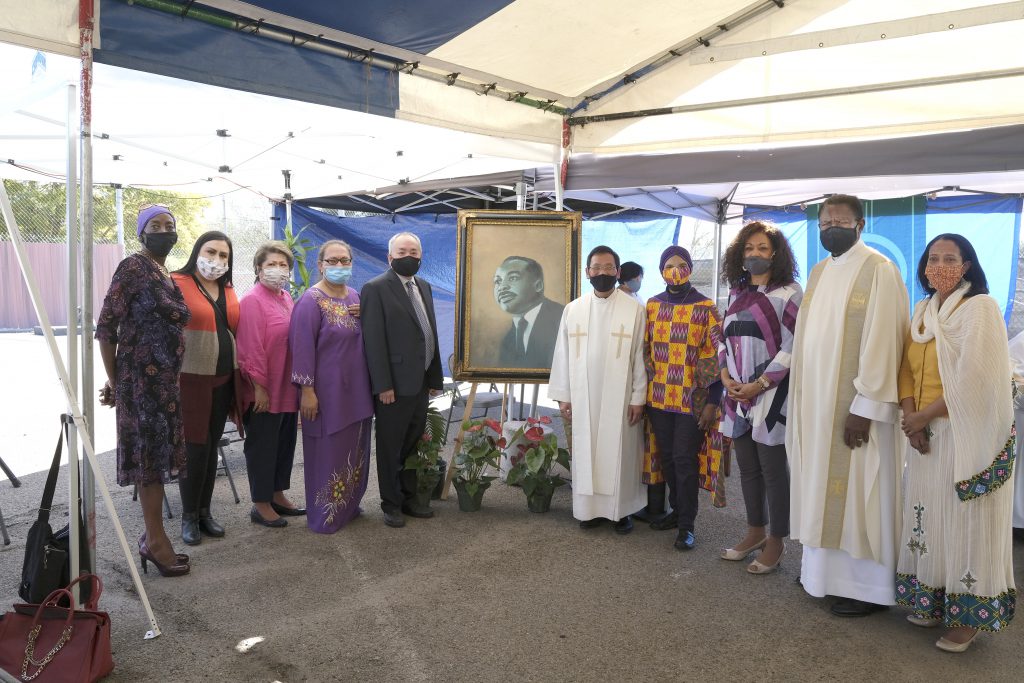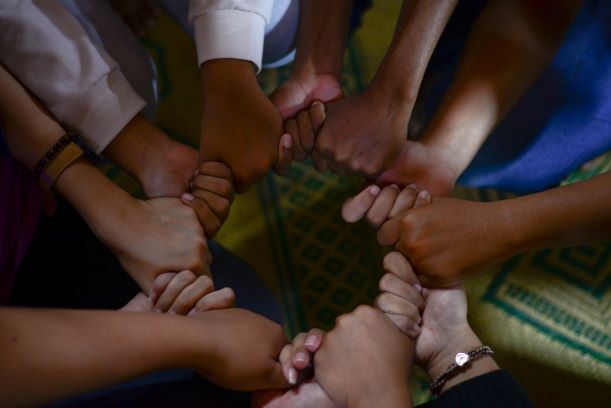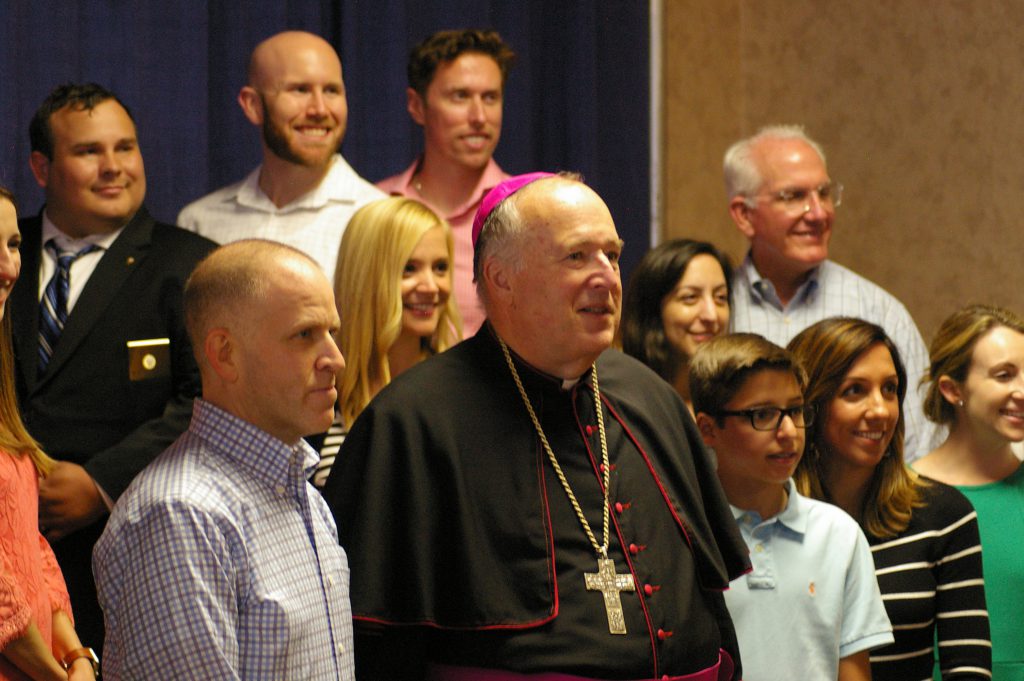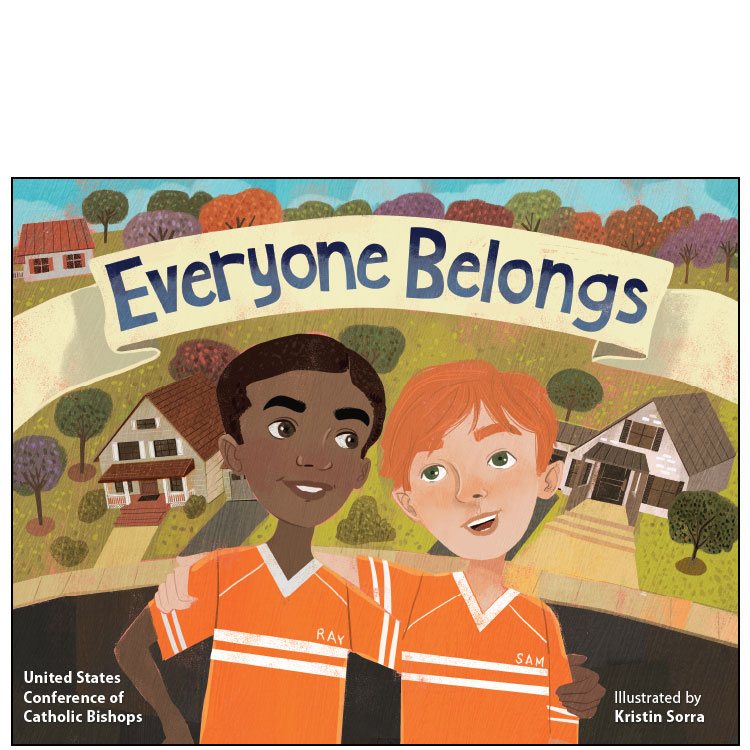SAN DIEGO — Denouncing racist beliefs and actions as “blasphemies” against God, Bishop Robert W. McElroy joined with several local interfaith leaders to speak out against bigotry.
The San Diego Organizing Project (SDOP) brought together dozens of interfaith leaders, including Bishop McElroy, for a press conference Aug. 18 in the courtyard of St. Paul’s Episcopal Cathedral.
The event was held in response to what had taken place Aug. 11-12 in Charlottesville, Virginia, where hundreds of white supremacists had staged a rally against the removal of a statue of Confederate Gen. Robert E. Lee; the rally ultimately turned violent, leaving one counter-protester dead and more than 30 other people injured. Two state troopers also died in a helicopter crash, while headed to the scene of the rally.
In her opening remarks, Kathleen Owens of the First Unitarian Universalist Church of San Diego said the interfaith gathering was intended “to send a clear message that the faith community of San Diego will not be silent in the face of racism, bigotry and hatred.” Before delivering the opening prayer, the Very Rev. Penny Bridges, dean of St. Paul’s Cathedral, described the event as a “declaration of our united and unconditional condemnation of racism and white supremacy.”
Beginning with Auxiliary Bishop John P. Dolan and concluding with Bishop McElroy, several speakers took to the stage outside St. Paul’s Cathedral to reflect on the Charlottesville rally and its aftermath. Speakers included Imam Taha Hassane, Islamic Center of San Diego; Bishop George McKinney, 2nd Jurisdiction Church of God in Christ; Pastor Tania Marquez, First Unitarian Universalist Church of San Diego; Rev. Mary Sue Brookshire, Pioneer Ocean View United Church of Christ; Rabbi Devorah Marcus, Temple Emanu-El of San Diego; and Bishop Cornelius Bowser, Charity Apostolic Church.
In his own remarks, Bishop Dolan contrasted the assembled faith leaders, whose message is one of communion, with many in the world who seem to be “hell-bent on a mission toward division.”
“We cannot allow division to be a part of this nation that God has blessed,” Bishop Dolan said. “Let us remember that communion is the only reason for us being together today … Our communion is the only reason for our desire to be one people under one God.”
In especially poignant remarks, Rabbi Marcus reflected on how it felt as a Jewish person “to see Nazi flags being waved proudly, without embarrassment or shame, on our American streets,” and Bishop McKinney, who is African-American, recalled having grown up in the South during “a dark period in the history of our nation” and stressed the important role of prayer in overcoming racism.
“While we fight for justice, and righteousness, and peace,” Bishop McKinney said, “we must also remember that this is our Father’s world, and we must remember to join together across denominational and faith lines in praying that God would direct our steps and that God would bless America.”
A recurring theme in the speeches was that religious leaders themselves have not done enough to address racism.
“For too long, too many of us, especially white people, especially white clergy … have done too little,” said Rev. Brookshire. “We have fallen asleep, dreaming that our world is better than it is. We must wake up, we must stand up, and we must speak up against hatred in all its forms. But we must do so in a spirit of love, lest we become like those we oppose.”
Imam Hassane and Pastor Marquez both challenged their fellow religious leaders to denounce bigotry from the pulpit, and Bishop Bowser called on local and county law enforcement to make advanced preparations and develop public safety plans in case a demonstration similar to that in Charlottesville were to take place in San Diego. (SDOP leadership believes that the chances of that are not unlikely, as a recent report identified 79 hate groups active in California, the highest number in any state.)
As the event’s final speaker, Bishop McElroy said, “I am proud to stand here today in solidarity with the religious leadership of San Diego to state categorically that the actions, the words and the beliefs of neo-Nazis, the Klan, white militias and all hate groups are blasphemies against the God who is the Creator of the whole human family and looks upon every man, and woman, and child as equal in dignity and in worth.”
The bishop lamented that “one of the most troubling elements” about the incident in Charlottesville was that so many of the participants were young people. He noted that this “puts to the lie” the belief that younger generations will not inherit the racism of the past, and he encouraged his fellow religious leaders to ask parents to discuss this issue with their children.
For his own part, Bishop McElroy said he had already requested that the diocesan Office for Schools and the diocesan Office for Evangelization and Catechetical Ministry work together on designing an educational module “specifically about the Charlottesville moment” for children through young adults.
Kevin Malone, executive director of the San Diego Organizing Project, told The Southern Cross that he had been “horrified, ashamed, not shocked though and not surprised” by the events in Charlottesville, explaining that such an occurrence has been “just waiting to happen.” But the fact that “it’s so plain and real, and the evil is so apparent” in this case, he said, provides an opportunity “to teach, and train, and awaken people.”
Sister RayMonda DuVall, who recently retired as executive director of Catholic Charities, said she had watched the news reports from Charlottesville with “absolute shock.” But as she processed what had happened, she realized that San Diegans needed to “rise up, say something and, better yet, do something” in response. It was that sentiment that brought her out to the press conference, where she stood shoulder-to-shoulder with other faith leaders behind the stage.
Father Emmet Farrell, a retired priest of the Diocese of San Diego, also stood behind the stage and listened intently to the many speakers. Admitting that he does not necessarily see himself as a great orator, he still felt called to be there.
“I speak with my feet,” he said, expressing hope that, simply through his presence in his Roman collar, he was able to communicate his solidarity with those seeking an end to racism and bigotry.
But, even as a priest with a long commitment to justice, Father Farrell said the press conference was an eye-opener. He told The Southern Cross that, on some level, he had been conditioned to accept Confederate monuments as being just “part of our history” and had not felt a strong need to remove them. But in light of what happened in Charlottesville and after hearing them described at the press conference as painful reminders of slavery and segregation, he changed his perspective.
“It was a conversion moment for me,” he said.

